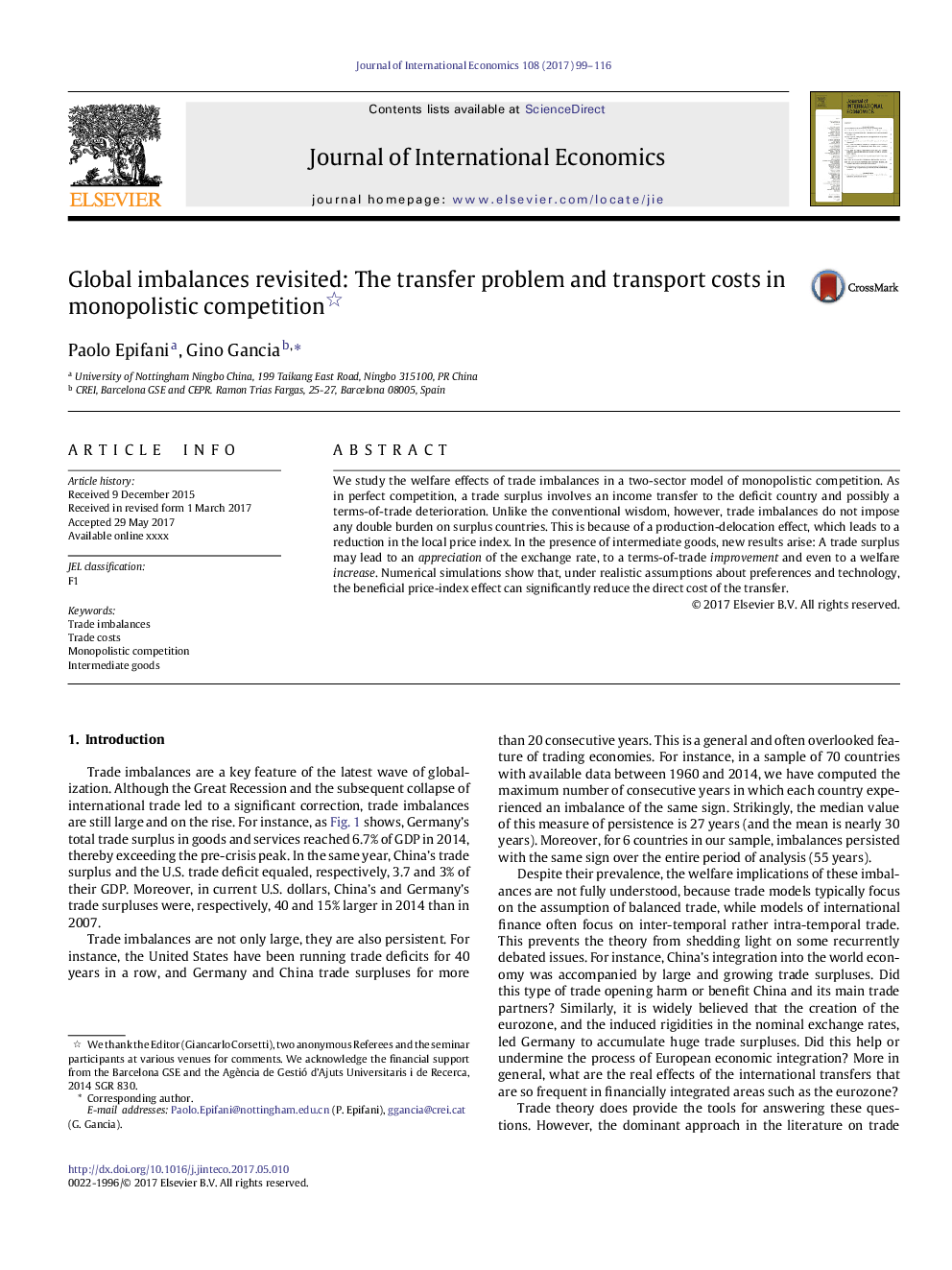| Article ID | Journal | Published Year | Pages | File Type |
|---|---|---|---|---|
| 5100897 | Journal of International Economics | 2017 | 18 Pages |
Abstract
We study the welfare effects of trade imbalances in a two-sector model of monopolistic competition. As in perfect competition, a trade surplus involves an income transfer to the deficit country and possibly a terms-of-trade deterioration. Unlike the conventional wisdom, however, trade imbalances do not impose any double burden on surplus countries. This is because of a production-delocation effect, which leads to a reduction in the local price index. In the presence of intermediate goods, new results arise: A trade surplus may lead to an appreciation of the exchange rate, to a terms-of-trade improvement and even to a welfare increase. Numerical simulations show that, under realistic assumptions about preferences and technology, the beneficial price-index effect can significantly reduce the direct cost of the transfer.
Related Topics
Social Sciences and Humanities
Economics, Econometrics and Finance
Economics and Econometrics
Authors
Paolo Epifani, Gino Gancia,
